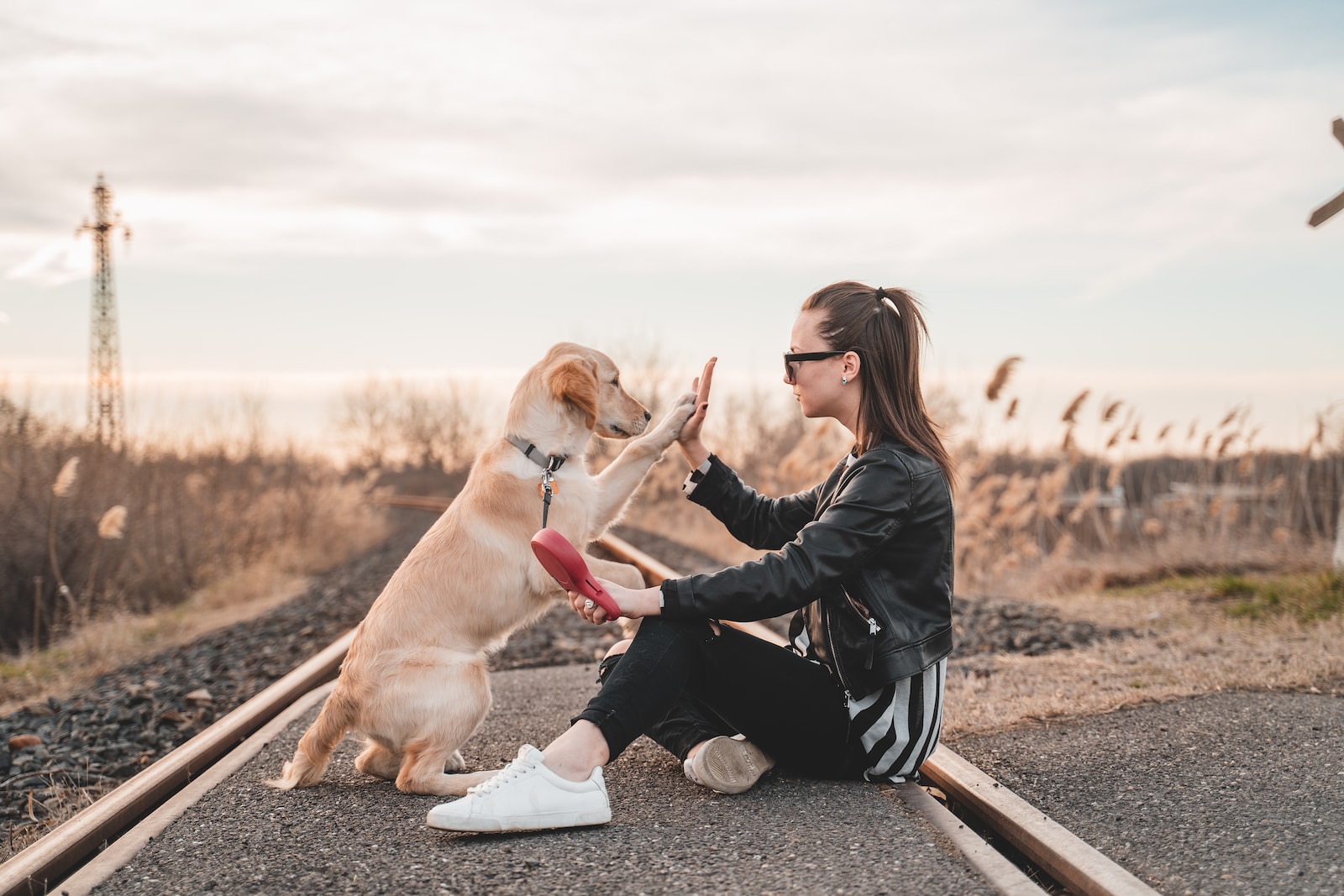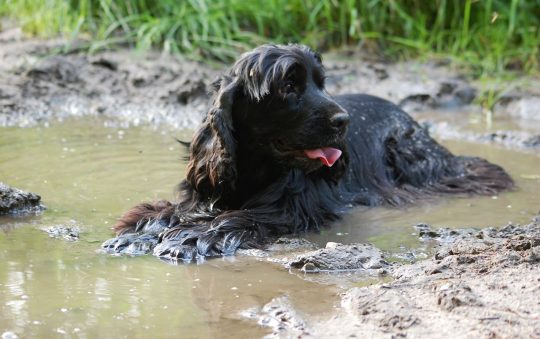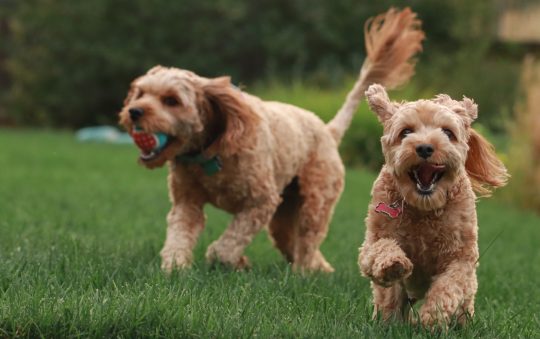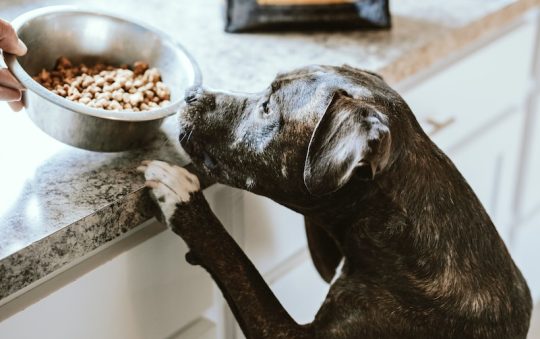Searching for the ideal dog trainer can feel like a Herculean task. But fret not, fellow dog lovers! With these expert tips, you can find the best dog training professional for your beloved four-legged companion, ensuring a happy and well-trained pooch.
- Word of Mouth: The Power of Recommendations Start by asking your vet, fellow dog owners, or local kennel clubs for their top picks. A good reputation is a must when it comes to finding the right dog trainer. Moreover, get the scoop on their background and experience. A seasoned pro with years under their belt is more likely to have the know-how to train your dog effectively.
- A Passion for Pooches You’ll want a trainer who’s head over heels for dogs and genuinely cares about your pet’s well-being. Keep an eye out for trainers who stay up-to-date with the latest techniques and methodologies, attending conferences, seminars, and workshops to broaden their knowledge.
- Positive Reinforcement: The Golden Rule of Training Good trainers put your dog’s well-being first and foremost, emphasizing positive reinforcement in training sessions. Steer clear of anyone using harsh punishment or negative tactics like shouting, hitting, or electric shocking. Training should be a walk in the park – enjoyable and rewarding for both you and your furry friend.
- Timing is Everything: Train When You’re Both in the Right Mood Just like us, dogs have good and bad days. If you’re not in the right frame of mind for training, hit the pause button and try again later. Be sure to reward your dog for prompt obedience, using treats, verbal praise, or toys as incentives.
- The Rise of Head Collars: A Modern Training Method Head collars have become increasingly popular as a training tool, offering a more intuitive approach to controlling dogs in challenging situations. Make sure the collar is properly fitted and introduce it gradually to your dog to ensure a smooth transition.
Now, let’s dive deeper into each of these tips to help you find the perfect dog trainer.
- Word of Mouth: The Power of Recommendations
Don’t underestimate the power of personal recommendations. Your vet or fellow dog owners can give you an insider’s perspective on the trainers they’ve worked with, and local kennel clubs might have a list of preferred professionals. Doing your homework and getting the inside scoop will save you time and help you find a trainer with a proven track record.
When researching potential trainers, be sure to inquire about their certifications and educational background. Look for trainers with certifications from reputable organizations, such as the Certification Council for Professional Dog Trainers (CCPDT) or the International Association of Animal Behavior Consultants (IAABC). These certifications indicate that the trainer has met specific standards of knowledge and expertise.
- A Passion for Pooches
A deep love for dogs goes hand in hand with being a great trainer. You can often spot these trainers by their enthusiasm, the rapport they have with dogs, and their commitment to staying current in their field. Check their website or social media for evidence of their passion and dedication, like sharing articles or attending events that showcase their expertise.
Don’t be afraid to ask potential trainers about their experience working with different breeds and temperaments. A skilled trainer should be able to tailor their approach to meet the unique needs of your dog, taking into account factors like age, breed, and personality.
- Positive Reinforcement: The Golden Rule of Training
A dog’s trust and happiness should be the top priority during training sessions. Keep an eye out for trainers who use positive reinforcement techniques, such as clicker training or reward-based methods. A red flag is any trainer who advocates for punishment or aversive methods. Remember, a happy dog learns faster and more effectively.
During your initial consultation with a trainer, ask about their training philosophy and methods. A good trainer should be able to clearly explain their approach and provide examples of how they’ve successfully used positive reinforcement techniques with other dogs. This will give you an idea of whether their methods align with your own beliefs and preferences.
- Timing is Everything: Train When You’re Both in the Right Mood
The saying “timing is everything” rings true in dog training. If you or your dog are in a sour mood, it’s best to take a rain check on training. When you do train, be patient and use plenty of praise and rewards. A happy, relaxed atmosphere will make training a breeze and help your dog learn more quickly.
Consistency is another crucial element of successful dog training. Work with your trainer to develop a regular training schedule that fits both of your lifestyles. This will ensure that your dog receives consistent reinforcement of desired behaviors, making it easier for them to understand what is expected of them.
- The Rise of Head Collars: A Modern Training Method
Head collars, like the Gentle Leader or Halti, have become popular training tools for their ease of use and effectiveness in controlling dogs. These collars work by gently guiding your dog’s head, reducing pulling and lunging without causing discomfort or pain. However, proper fit and a gradual introduction are essential to avoid any potential stress or injury to your dog.
If you decide to use a head collar, consult with a knowledgeable trainer to ensure it’s correctly fitted and to learn how to introduce it to your dog in a stress-free manner. This modern approach to training can be a game-changer for managing your dog in tricky situations, making walks more enjoyable for both of you.
- Group Classes vs. Private Lessons: Weighing the Options
When choosing a dog trainer, you’ll also need to decide between group classes and private lessons. Group classes can be a great way for your dog to socialize with other dogs and learn basic obedience skills. However, private lessons may be more suitable if your dog has specific behavioral issues or needs one-on-one attention. Discuss your dog’s needs with your trainer to determine the best approach for your situation.
- Trust Your Instincts
Finally, trust your instincts when selecting a dog trainer. Observe how the trainer interacts with your dog and how your dog responds to them. If you feel uncomfortable or notice any red flags, don’t hesitate to look for another trainer. Your dog’s well-being and happiness should always come first.
Final Thoughts: Choosing Your Dog Trainer
Finding the perfect dog trainer is crucial for your dog’s well-being and happiness. Start by asking around for recommendations and doing your research. Seek a trainer with a stellar reputation, extensive experience, and a genuine love for dogs. Prioritize positive reinforcement and avoid harsh punishment or negative training methods. Make sure training is a positive and enjoyable experience for both you and your furry friend.
By following these expert tips, you’ll be well on your way to finding a dog trainer who will help your pooch become the well-mannered, happy companion you’ve always wanted. Happy training!
Best training collar for stubborn dogs
http://dogsupplyfinder.com.test/mastering-german-shepherd-training-tips-tricks-and-techniques-for-a-well-behaved-companion/
Best Training Collar for German Shepherd 2023: Reviews + Buying Guide




